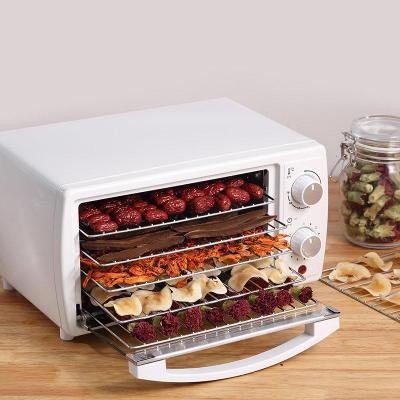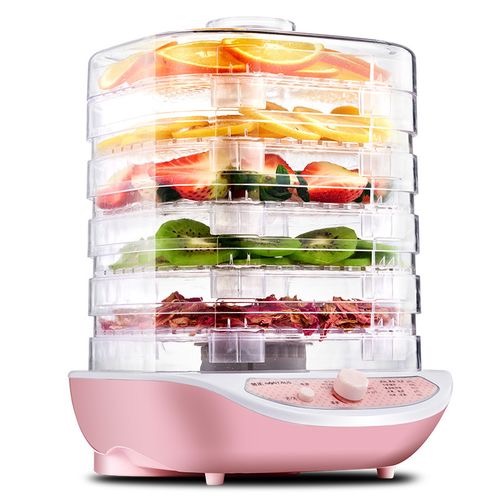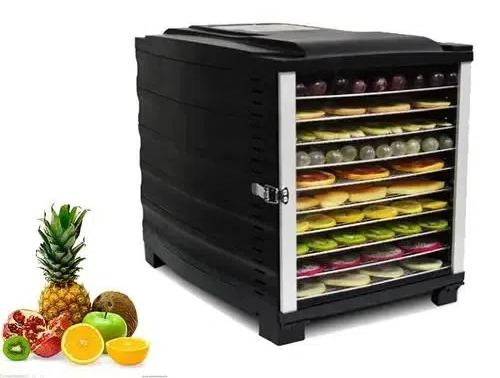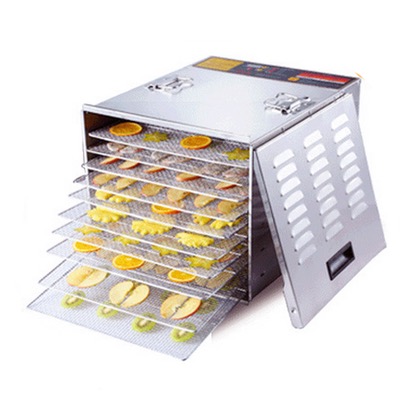
Content Menu
● Introduction to Fruit Dryer Machines
● The Rise of Commercial Fruit Dehydrators
>> Features of Commercial Fruit Dehydrators
● Home Fruit Dehydration Machines: Bringing the Power of Preservation to Your Kitchen
>> Benefits of Home Fruit Dehydration Machines
● The Technology Behind Fruit Dryer Machines
>> Key Components of Fruit Dryer Machines
>> The Drying Process
● Choosing the Right Fruit Dryer Machine
>> 1. Capacity
>> 2. Temperature Control
>> 3. Energy Efficiency
>> 4. Construction Material
>> 5. Ease of Use
● Popular Fruits for Dehydration
● Tips for Successful Fruit Drying
● Commercial Applications of Fruit Dryer Machines
● Maintenance and Care of Fruit Dryer Machines
● The Future of Fruit Drying Technology
● Conclusion
● Frequently Asked Questions
>> 1. What is the ideal temperature for drying most fruits?
>> 2. How long does it typically take to dry fruits in a dehydrator?
>> 3. Are homemade dried fruits healthier than store-bought ones?
>> 4. Can I use a fruit dryer machine to make other dried foods like vegetables or jerky?
>> 5. How should I store dried fruits, and how long do they last?
Introduction to Fruit Dryer Machines
In today's health-conscious world, the demand for nutritious and convenient snacks has never been higher. Enter the fruit dryer machine, a revolutionary appliance that has transformed the way we preserve and enjoy nature's bounty. Whether you're a home enthusiast looking to make your own dried fruits or a commercial producer aiming to meet market demands, fruit dryer machines offer an efficient and effective solution for creating delicious, long-lasting treats.
The Rise of Commercial Fruit Dehydrators
Commercial fruit dehydrators have become increasingly popular in recent years, catering to the growing demand for dried fruits in the food industry. These industrial-grade machines are designed to handle large quantities of fruits, vegetables, and other food products, making them ideal for businesses of all sizes.
Features of Commercial Fruit Dehydrators
1. Large Capacity: Commercial fruit dehydrators often come with multiple trays, allowing for the simultaneous drying of various fruits and vegetables.
2. Precise Temperature Control: Advanced temperature control systems ensure consistent and optimal drying conditions for different types of produce.
3. Energy Efficiency: Modern commercial dehydrators are designed to maximize energy efficiency, reducing operational costs for businesses.
4. Stainless Steel Construction: Many industrial food dryers are made from durable stainless steel, ensuring longevity and easy maintenance.
Home Fruit Dehydration Machines: Bringing the Power of Preservation to Your Kitchen
For those who prefer to create their own dried fruits and snacks at home, electric food dehydrators offer a convenient and user-friendly solution. These compact appliances are perfect for small-scale production and experimentation with different fruits and recipes.
Benefits of Home Fruit Dehydration Machines
1. Versatility: Dry a wide variety of fruits, vegetables, herbs, and even make your own jerky.
2. Cost-Effective: Save money by buying fruits in bulk during peak season and preserving them for later use.
3. Healthier Snacking: Create preservative-free, all-natural dried snacks for you and your family.
4. Customization: Control the thickness of slices and drying time to achieve your desired texture and flavor.

The Technology Behind Fruit Dryer Machines
Fruit dryer machines utilize advanced technology to remove moisture from fruits and vegetables while preserving their nutritional value and flavor. Understanding the working principles of these machines can help you choose the right one for your needs and optimize its performance.
Key Components of Fruit Dryer Machines
1. Heating Element: Generates warm air to facilitate the drying process.
2. Fan: Circulates hot air evenly throughout the drying chamber.
3. Trays: Hold the fruits and vegetables during the drying process.
4. Temperature Control: Allows users to adjust the heat according to the type of produce being dried.
5. Timer: Enables precise control over the drying duration.
The Drying Process
1. Preparation: Fruits are washed, sliced, and arranged on the drying trays.
2. Loading: Trays are placed inside the drying chamber.
3. Heating: The machine generates warm air, typically between 95°F to 165°F (35°C to 74°C).
4. Circulation: Hot air is circulated throughout the chamber, removing moisture from the fruits.
5. Monitoring: The process is monitored and adjusted as needed to achieve the desired level of dryness.
6. Cooling: Once dried, fruits are allowed to cool before storage.
Choosing the Right Fruit Dryer Machine
When selecting a fruit dryer machine, consider the following factors to ensure you find the perfect fit for your needs:
1. Capacity
Determine the amount of fruit you plan to dry regularly. For home use, a small to medium-sized dehydrator with 5-10 trays is usually sufficient. Commercial operations may require large capacity fruit dehydrators with 20 or more trays.
2. Temperature Control
Look for machines with adjustable temperature settings. Different fruits require varying drying temperatures, so having this flexibility is crucial for achieving optimal results.
3. Energy Efficiency
Energy-efficient fruit drying machines can help reduce operational costs, especially for commercial users. Look for models with energy-saving features and good insulation.
4. Construction Material
Stainless steel fruit dryers are durable, easy to clean, and resistant to corrosion. They are ideal for both home and commercial use.
5. Ease of Use
Consider features like digital controls, transparent doors for easy monitoring, and dishwasher-safe trays for convenient cleaning.

Popular Fruits for Dehydration
While almost any fruit can be dried, some are particularly well-suited for the process. Here are some popular choices:
1. Apples
2. Bananas
3. Strawberries
4. Mangoes
5. Pineapples
6. Peaches
7. Apricots
8. Grapes (to make raisins)
9. Cherries
10. Blueberries
Each fruit has its own optimal drying time and temperature, so be sure to consult your machine's manual or reliable recipes for the best results.
Tips for Successful Fruit Drying
To ensure the best results when using your fruit dryer machine, consider the following tips:
1. Choose ripe, high-quality fruits for the best flavor.
2. Wash and dry fruits thoroughly before slicing.
3. Cut fruits into uniform slices to ensure even drying.
4. Pre-treat fruits prone to browning (like apples and bananas) with lemon juice or ascorbic acid solution.
5. Arrange fruit slices in a single layer on the trays, leaving space between pieces for air circulation.
6. Rotate trays during the drying process if your machine doesn't have a built-in rotation feature.
7. Store dried fruits in airtight containers in a cool, dry place.
Commercial Applications of Fruit Dryer Machines
Professional food dehydration equipment has found applications in various industries beyond simple snack production. Some commercial uses include:
1. Fruit Snack Manufacturing: Creating healthy, portable snacks for retail sale.
2. Ingredient Production: Supplying dried fruits for use in cereals, baked goods, and trail mixes.
3. Herbal and Tea Production: Drying herbs and fruits for use in teas and herbal remedies.
4. Pet Food Industry: Producing dried fruit and vegetable ingredients for premium pet foods.
5. Preservation of Seasonal Produce: Allowing farmers and food processors to extend the shelf life of seasonal fruits.
Maintenance and Care of Fruit Dryer Machines
Proper maintenance of your fruit dryer machine is essential for ensuring its longevity and optimal performance. Here are some key maintenance tips:
1. Clean the trays and interior after each use with warm, soapy water.
2. Wipe down the exterior with a damp cloth regularly.
3. Check and clean the air filters (if present) monthly.
4. Inspect the heating element and fan for any signs of wear or damage.
5. Store the machine in a clean, dry place when not in use.
6. Follow the manufacturer's guidelines for any specific maintenance requirements.
The Future of Fruit Drying Technology
As technology continues to advance, we can expect to see further innovations in fruit drying machines. Some potential developments include:
1. Smart Features: Wi-Fi-enabled dehydrators that can be controlled and monitored via smartphone apps.
2. Improved Energy Efficiency: More advanced heating and circulation systems to reduce energy consumption.
3. Faster Drying Times: New technologies that can accelerate the drying process without compromising quality.
4. Enhanced Nutrient Preservation: Methods to better retain vitamins and minerals during the drying process.
5. Eco-Friendly Materials: Use of sustainable and recyclable materials in machine construction.
Conclusion
Fruit dryer machines have revolutionized the way we preserve and enjoy fruits, offering both home users and commercial producers an efficient means of creating delicious, nutritious snacks. Whether you're looking for a small electric food dehydrator for your kitchen or a large capacity fruit dehydrator for your business, there's a machine out there to suit your needs.
By understanding the technology behind these machines and following best practices for fruit drying, you can unlock a world of flavors and possibilities. From creating your own healthy snacks to developing new product lines for your food business, fruit dryer machines open up exciting opportunities for innovation and enjoyment.
As we look to the future, it's clear that fruit drying technology will continue to evolve, bringing even more efficient and user-friendly solutions to market. Whether you're a health-conscious consumer, a culinary enthusiast, or a food industry professional, embracing the power of fruit dryer machines can help you make the most of nature's sweet offerings all year round.

Frequently Asked Questions
1. What is the ideal temperature for drying most fruits?
Answer: The ideal temperature for drying most fruits is between 135°F to 145°F (57°C to 63°C). However, this can vary depending on the specific fruit and desired end result. It's important to consult your dehydrator's manual or reliable recipes for optimal temperature settings.
2. How long does it typically take to dry fruits in a dehydrator?
Answer: Drying times can vary greatly depending on the fruit, its water content, and the thickness of the slices. On average, it can take anywhere from 6 to 36 hours. For example, thinly sliced apples might take 6-12 hours, while whole strawberries could take 24-36 hours.
3. Are homemade dried fruits healthier than store-bought ones?
Answer: Homemade dried fruits can be healthier than many store-bought options because you have control over the ingredients. You can avoid added sugars, preservatives, and sulfites that are often found in commercial dried fruits. However, it's important to note that the drying process itself concentrates the natural sugars in fruits, so portion control is still important.
4. Can I use a fruit dryer machine to make other dried foods like vegetables or jerky?
Answer: Yes, most fruit dryer machines are versatile and can be used to dry a wide variety of foods including vegetables, herbs, and even meats for jerky. Always ensure you follow proper food safety guidelines, especially when drying meats.
5. How should I store dried fruits, and how long do they last?
Answer: Dried fruits should be stored in airtight containers in a cool, dry, and dark place. When stored properly, most dried fruits can last 6-12 months. For longer storage, you can keep them in the refrigerator or freezer, which can extend their shelf life up to 18 months or more. Always check for any signs of mold or off-odors before consuming stored dried fruits.












